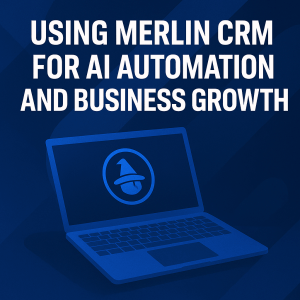In the times of my parents and grandparents, relationships seemed simpler and often lasted longer. Social media didn’t exist, and interactions were confined to the community bubble. One would meet another person, they’d date, fall in love, and decide to marry and start a family. That family would, in most cases, remain together for life. The options for interaction were limited to their immediate circles, which meant people focused more on nurturing the few meaningful relationships they had.
Today, our world has shifted dramatically. The bubble we live in is now global, thanks to social media and the internet. You can meet someone new almost every day, regardless of where they are in the world. On the surface, this seems like an incredible opportunity for connection, but it also brings complexities that previous generations never had to deal with.
One of the main challenges in modern relationships is this abundance of choice. Because the options are so wide and accessible, many people find themselves struggling to commit. It’s not just about meeting new people; it’s about the temptation of always wondering if there’s someone better out there. With a simple swipe or click, entire new avenues open up, which can cause even stable relationships to falter under the pressure of limitless possibilities.
Social media has also contributed to a rise in jealousy, distrust, and miscommunication. When people put curated versions of themselves online, it creates a perfect breeding ground for insecurity. Who is that person your partner keeps interacting with? Why didn’t they respond to your message when they’ve clearly been online? This kind of over-exposure to others’ lives—and even to our partners’ activities—has created a unique set of problems. Many times, the problem isn’t even infidelity but rather a lack of communication about boundaries, expectations, and emotions.
This issue of “overabundance” isn’t just isolated to personal relationships; it echoes in the world of business as well. As an experienced entrepreneur in IT, AI, and several other industries, I’ve seen this dynamic play out with our professional relationships, whether with clients, partners, or even prospects. Today, as business owners, managers, or sales reps, we have countless opportunities to market, sell, and network—far more than anyone could have imagined decades ago. But with this abundance also comes a dilemma: how do we focus on what’s truly important?
The parallels between romantic relationships and business strategies are striking. Just as in personal relationships, businesses must resist the temptation to “chase everyone” and instead learn how to prioritize and nurture the most valuable connections. In today’s digital age, our target market is enormous, and the challenge is not merely about reaching people—it’s about reaching the right people in the right way.
To do this effectively, segmentation is key. Just as a healthy relationship thrives on understanding and responding to your partner’s needs, a successful business thrives by understanding its audience and personalizing its approach. Not every potential customer wants the same thing, and a blanket approach will only lead to confusion and disengagement. By segmenting your target audience based on their preferences, behaviors, and needs, you can create tailored marketing strategies that resonate deeply.
Take, for example, your social media marketing efforts. Posting a general message to everyone might get some traction, but the real power comes when you address the specific needs of each group—whether it’s a different demographic, geographic area, or interest group. This customized approach allows you to create authentic, meaningful connections with your audience. The same goes for email marketing, website content, or even sales outreach—each touchpoint must feel personal to resonate.
A failure to segment, understand, and respond appropriately to your audience can lead to the equivalent of a business “divorce”—lost customers, decreased loyalty, and a tarnished brand reputation. Customers, like partners in a relationship, want to feel valued. They want to know that their needs are being heard and that you are genuinely committed to providing them with the best possible experience. When they don’t feel this, they’ll quickly look elsewhere, especially in a world full of competing options.
To be effective in today’s highly connected environment, whether in personal or professional relationships, requires not just effort but also a strategic approach. It’s not enough to be present; you must be attentive, adapt to changing circumstances, and work on creating genuine, lasting connections. That means being clear about your intentions, understanding the people you’re trying to connect with, and staying true to your promises—whether that promise is to be a loyal partner or to provide value to your customers.
Ultimately, relationships—both personal and professional—thrive on trust, commitment, and the willingness to adapt. Social media and the internet have given us powerful tools to connect with more people than ever before, but we must use these tools mindfully. Instead of letting the abundance overwhelm us, we should leverage it to build meaningful connections that stand the test of time. Just like the successful relationships of past generations, it’s about quality, not quantity.
I hope you found this article insightful. As always, if you have any questions or thoughts, I’d love to hear from you. Feel free to reach out to me on Instagram, where you can find me as @ochoa.andree and let’s keep the conversation going—whether about relationships, business, or how to navigate the intersection of the two in today’s digital age.









